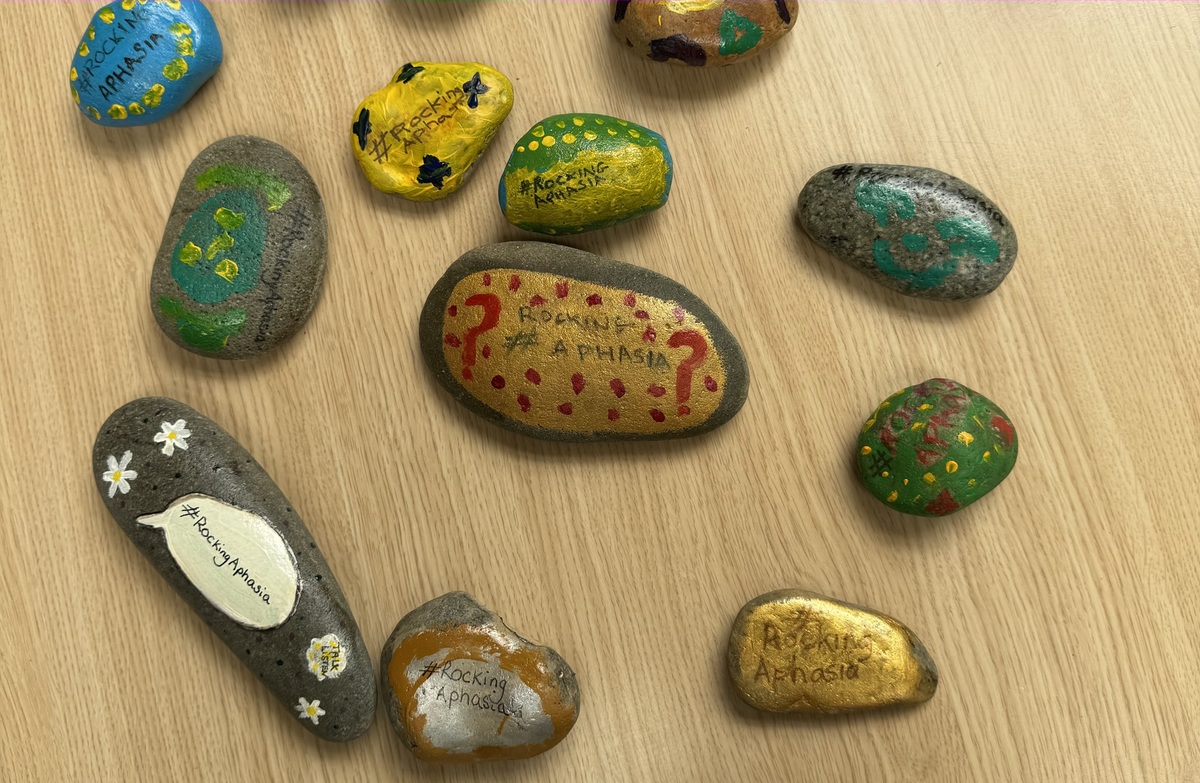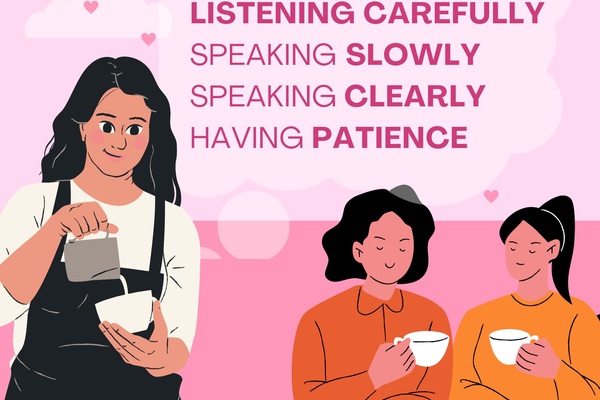
This June proved a big month for everyone involved in supporting stroke-affected people in Bristol, with the highlight being a “guerrilla publicity campaign” called “#RockingAphasia”.
This an awareness campaign initiated by a collaboration of members of the Royal College of Speech and Language Therapists (RCSLT), members of aphasia advocacy groups and members of the Stroke Association.
June is “Aphasia Awareness Month”: a global campaign which aims to increase the public’s understanding of one of the common side-effects of stroke.
Often a “hidden disability”, aphasia affects the communication skills of over a third of stroke-affected people, making it more difficult for them to speak or process speech, read, write or manage money.
In support of the campaign, stroke-affected people in Bristol and South Gloucestershire have been secretly making their mark by painting pebbles in bright colours, writing “#RockingAphasia” on them, and leaving them in parks and other places for members of the public to find.
“We aimed to puzzle the finders sufficiently for them to check out on social media what #RockingAphasia is all about,” says independent speech and language therapist Sarah Woodward, who supports those with aphasia locally through Bristol After Stroke’s aphasia conversation groups.
The effects of aphasia
“Of the 1.3 million people in the UK who have had a stroke, 350,000 are still living with the symptoms of aphasia. It can not only affect people’s relationships and careers, but lead to a loss of confidence, isolation and poor mental health. It can strike people of all ages, genders and ethnicities – it really doesn't discriminate.
“People’s intelligence is not affected,” she adds, “although that is often the perception. Those with aphasia simply ‘do things differently’ – they process what someone is saying to them more slowly, for example. And they might take a little longer to reply.
“That’s why we are spreading the message that, if you are chatting to someone with aphasia, they will want you to listen carefully, speak slowly and clearly and – most importantly – be patient.
“How much improvement people can hope to achieve will vary significantly,” adds Sarah, “but we do know that they can continue to improve for years into the future due to neuroplasticity – the ability for our brains to relearn and/or compensate for neurological damage that may have occurred.”
Receiving specialist support following a stroke can also make a positive difference – and that’s where Bristol After Stroke plays a key role in hundreds of local people’s lives every year.
Patience the key
“It's not just about restoring people’s communication skills,” Sarah says. “Going to the BAS groups puts people in contact with others going through the same struggles as they are.
The understanding and peer-support they receive can reduce their sense of social isolation, give them the confidence to go out into the wider world and, as a result, improve their mental wellbeing.”
So, just how much work still needs to be done to improve aphasia awareness amongst the public? “I’ve been working in this field for over 25 years,” says Sarah, “and despite everyone’s best efforts, very few people know about aphasia – unless they have had it themselves, or a family member or friend has it.
“Not a single one of our group members knew about it before they developed it.
“But if you do know someone who has it, or you come across them in your work or social life, do remember to be patient and make allowances.
“Those with aphasia have to work doubly hard to process what is going on in conversations – I liken it to trying to communicate in a second language all day.”





